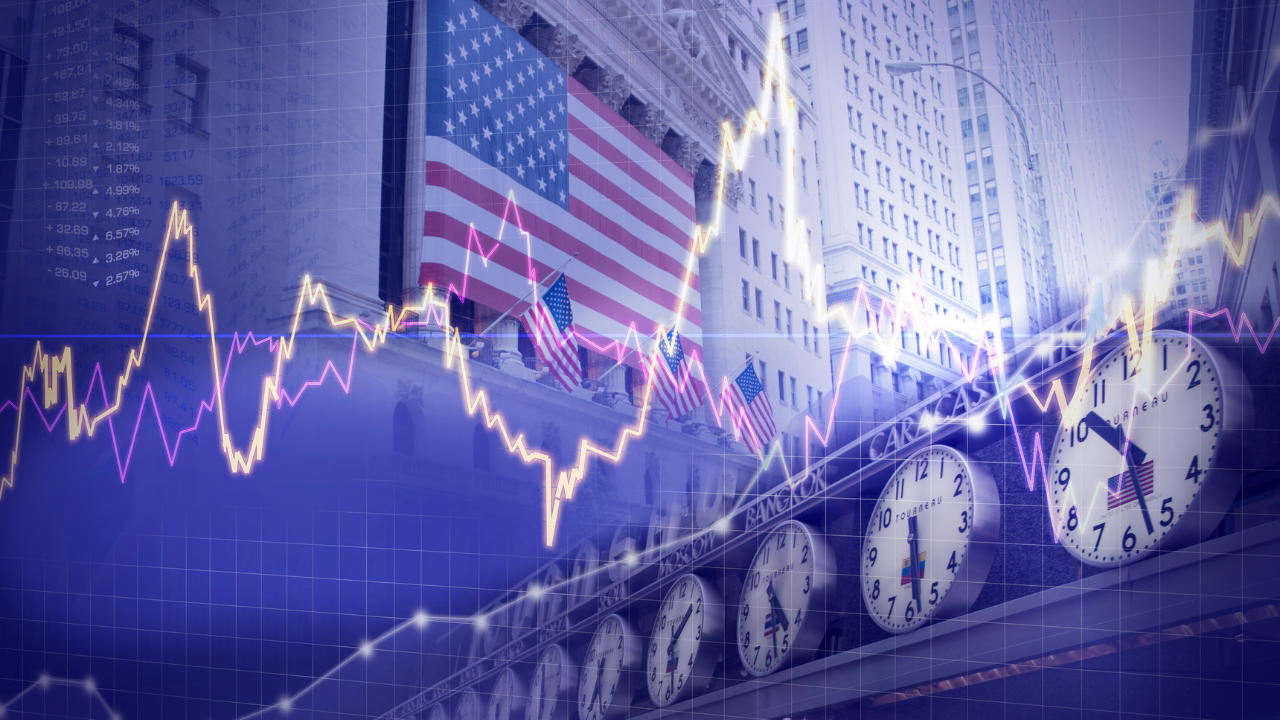Futures Trading Explained – What is Futures Trading For Beginners?
Futures are contracts to buy or sell some underlying asset (like corn, soybeans, gold, silver, etc.) at a predetermined price at a specific time in the future – hence the name “futures”. Similar to options – futures are derivatives, but a lot less complicated.
This simple definition might not mean very much to you so far, but don’t worry. The concept of futures contracts are much easier to understand when considered in terms of a commodity – like corn – and the massive business landscape surrounding it.

You might not consciously think about it on a daily basis, but there are thousands of companies that use corn in their products – producers of vegetable oils, syrups, chips, cereals, tortillas, and more. So the price of corn can heavily impact these businesses.
In order to protect against the risk of corn prices going too high in the future – and pushing production costs through the roof – these corn-product manufacturers might choose to lock-in an acceptable price for corn right now through futures contracts.
The farmer growing the corn might also want to lock-in an acceptable selling price to protect against a potential decrease in the value of corn. And when both a buyer and seller of corn agree on a price in advance, they protect themselves against fluctuations.
This predetermined price agreement on some commodity for some specific time in the future is the basis of futures contracts.
So Where Do Short-Term Traders Come Into Play in Regard to Futures Contracts?
You might be thinking: “I don’t have any commodities to sell, nor do I intend on buying a massive amount of any particular one. So how do I trade futures?” And the answer is that you can still trade the contracts without intending to buy or sell the underlying asset.
The larger institutional buyers are typically the ones who might intend on actually delivering or receiving the underlying product (like legitimate bushels of corn, for example) in order to effectively run their businesses. But not retail buyers and sellers.
Retail buyers and sellers do not have actual intentions to provide or receive any physical assets. They simply want to profit from the price changes of these assets. So it’s incredibly important to understand the specific markets and contracts that you are trading.
If we continue with our corn example, let’s say you are long 3 futures contracts going into expiry. This is the equivalent of 15,000 bushels of corn. So if you hold through expiry, you might be on the hook to take delivery on 15,000 bushels of corn.
As a retail trader/investor, I’m going to assume that you have no actual need for this much corn. So the best way to avoid the hassle of delivering or receiving physical assets altogether is to always exit your futures contracts prior to expiry. KNOW YOUR MARKETS.
Why Retail Traders Trade Futures – 5 Major Benefits of Futures Trading:
There are some clear advantages to trading futures over other financial markets and instruments. Here are the top 5 benefits:
1. HIGH LIQUIDITY
Futures markets – especially the ones related to popular indexes and commodities – are some of the most liquid financial markets available. This results in tighter bid-ask spreads, which allows traders to enter and exit positions without issue.
2. AROUND-THE-CLOCK ACCESS
Most futures markets are open at least five days per week and nearly 24 hours per day. There are short settlement and maintenance breaks each day that vary from market-to-market, but other than that these markets tend to be open for trading.
3. EASY TO SHORT
When it comes to shorting (especially penny stocks – low-priced stocks trading under roughly $5 per share), for example, it can be exhausting and pricey finding a broker that has shares available to short. With futures, there are no borrows or borrow fees.
4. LEVERAGE/CAPITAL EFFICIENCY
Leverage is a double-edged sword – it’s both a benefit and a risk. But if the risk is managed appropriately, the benefits can be extremely high. When entering into a futures trade, you don’t have to put up 100% of the contract’s total value amount.
5. TAX BENEFITS
From a tax perspective, futures are dealt with using the 60/40 rule. This means that 60% of profits are treated as long-term capital gains (subject to a 15% tax rate) and 40% are treated as short-term capital gains (subject to your ordinary tax rate).
The Wrap-Up – Should You Consider Trading Futures Instead of Stocks and Options?
When it comes down to it, the markets and specific instruments you choose to trade are completely up to you. Your decision can be made based on availability, personal preference, and a number of other factors. You can ultimately trade multiple markets if you want.
I personally started out trading mainly stocks, then transitioned to mainly options, and now much of my current efforts are going toward futures. I still trade stocks and options, but if I had to choose a favorite for day trading it would have to be futures.
Futures are my favorite for all the benefits stated in the previous section, but also because there are numerous well-established firms offering funded trader programs for futures and forex. There are a lot less funding opportunities for stock and options traders.
For individuals without much of their own capital to trade with, funded trader programs can be a ticket to trading at a professional level with a large five or six-figure account. Some will even go as high as seven figures depending on the circumstances.
If you can prove your abilities to capture consistent profits while appropriately managing risk, then you can get funded. There are specific rules to follow, as well as a profit-split once funded, but these programs in general offer some great opportunities.
Please share your experiences with futures trading or any funded trader programs in the comments section below.
Learn More in the Trading Success Framework Course
Written by Matt Thomas (@MattThomasTP)
Related Pages:
- What is Apteros Trading and Who is Merritt Black?
- Best Trading Sites – Beginners Guide to Active Trading
- Is Topstep Trader a Scam – My Thoughts as a Topstep Trader
- Where to Start Day Trading – Best Resources For Beginners
- Why is Day Trading So Hard – The Realities of Day Trading




I don’t much about futures trading, especially talking about crypto futures trading. But I have been scared of it for so long because I see and hear how my friends lose money most times trading futures. Well, that has become the past now as I think I would experiment with it after all I have read on this post and have gotten some knowledge on it.
Loss, risk, and uncertainty are all unavoidable aspects of trading. But with that risk and uncertainty comes opportunity. Futures trading specifically involves leverage, so it’s not something that untrained/unprepared individuals should be messing with. But if you have a statistical edge, can properly manage risk, and execute on your strategy with consistency, then futures trading can be extremely rewarding. I highly recommend anybody without proven consistency to start with demo/simulated trading first and then slowly build up into real money trading from there. Hoping/gambling is not good trading – having a statistical edge with the skills to execute on it with consistency is. Overall, trading is a marathon, not a sprint.